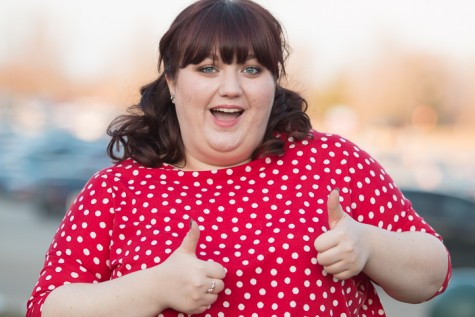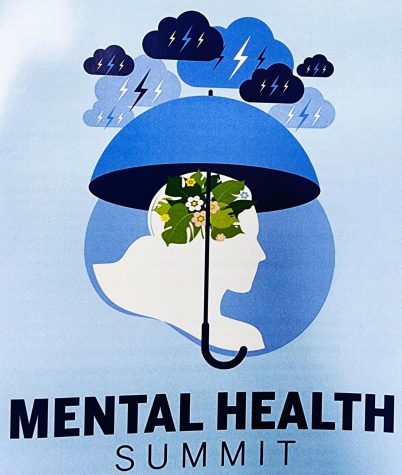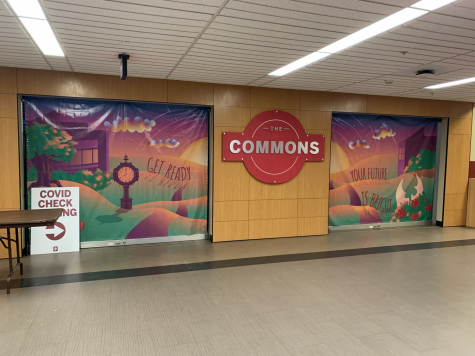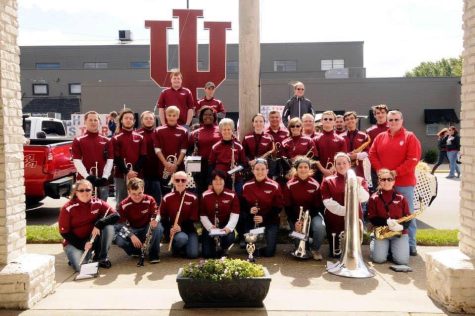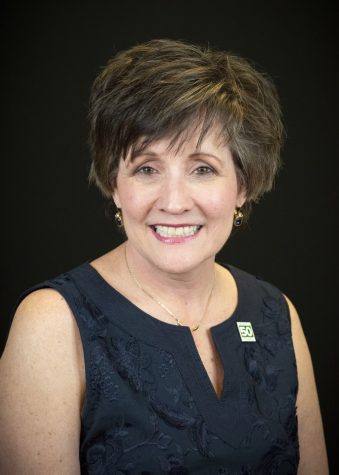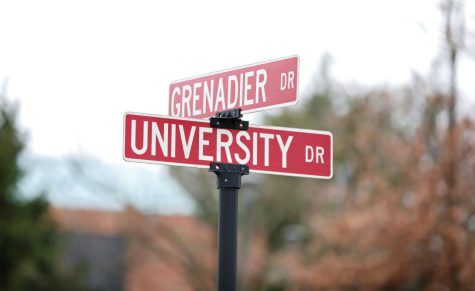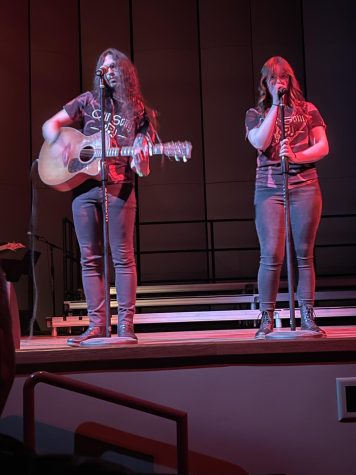TAKING ITS TOLL: The personal and societal effects of domestic abuse
October 21, 2014
Every step is like walking on eggshells. Checking your voicemail only to hear a message about how worthless you are. Getting berated for leaving a light on by accident. This was the life of Kristen*, a victim of domestic abuse.
Kristen knows what this life is like. Where even the littlest mistake could get her into a fight with her abuser.
“You don’t know that you’re going to be in a Lifetime [channel] for women story until way after. But the signs were there,” she said.
She fell into this abusive relationship during college in 2005.
“I was 20 and in that developmental stage. I hadn’t had much experience,” Kristen said. “I met this man, who seemed like my knight in shining armor.”
The relationship became abusive over time. Her abuser, who had flunked out of college, became the reason she dropped out.
“He slowly talked me out of going to classes. He [said], ‘You were too stupid for school anyway, you’d never make it.’”
After Kristen met this man, she gained weight and decided to start going to the gym.
This began the verbal abuse that sparked her struggle with bulimia nervosa, a disorder that involves binge eating and purging.
While living in another town, isolated from her friends and family, Kristen discovered that her eating disorder was about to take her life.
“I was shutting down my kidneys. They told me I was about to die from my eating disorder and I finally went to therapy.”
Kristin’s family had a huge impact on her ability to get out of the toxic relationship she was in.
“[They] told me to get everything packed up just in case I had to leave. It turned out that that night he threatened to kill me if I ever left, and that was it, that was the final straw.”
She said that it took nearly two years, one of which was spent in recovery, before she enrolled at IU Southeast and came back to school in the spring of 2012.
“I think that’s one of the most affirming things that I’ve ever done,” she said. “You have to erase all of this distorted thinking that they brainwash you into and you wonder why you stayed so long.”
Domestic violence is more prevalent in our society than people think it is, Veronica Medina, assistant sociology professor, said.
So far in 2014 the U.S. Department of Justice Statistics shows that 25 percent of women in the U.S. have experienced domestic violence. Of the 960,000 reported incidents per year, 85 percent were women and 15 percent were men.
For every four women reading this, at least one has experienced domestic abuse.
The victim
“Intimate partner violence does not discriminate. It has no boundaries,” said Annell Lough, a family advocate at The Center for Women and Families and survivor of intimate partner violence.
“We need to challenge masculinity and rethink gender roles in our society. Domestic violence is also something that affects same-sex relationships, the elderly and the disabled, who also face additional barriers on top of abuse,” Medina said.
Experts say that there are many factors that could go into what makes someone become an abuser or a victim.
You just don’t realize how lost you become. You lose your sense of authenticity and you don’t know who you are. It is a lot of work figuring out who you are.
— Kristen* said
“The first risk factor is growing up in violence. They are more likely to become an abuser or a victim,” said Lori Droege, prevention coordinator at The Center for Women and Families.
Gender socialization is also an issue, Medina said, as women are “not taught to be tough.”
“The media reinforces these ideas of gender roles of different types: like men being in control or always being tough. We shouldn’t be trying to put each other in boxes,” Droege said.
Effects of abuse
Depression, anxiety, self-blame, self-esteem issues, doubt, post traumatic stress disorder (PTSD), health issues and more are just some of the possible effects of abuse, Medina said.
PTSD is something that Kristen deals with even to this day, as she can no longer listen to voicemails on her phone.
“It invokes such a primal fear that I’m going to listen to that voicemail and hear his voice saying these terrible things,” she said.
As a way to cope with the abuse during the relationship, Kristen said she developed bulimia nervosa.
“I did a lot of work getting over the abusive relationship, but what I didn’t realize was that I had turned into my own abuser through this eating disorder,” she said. “I did that as a way to protect myself from the mental anguish. What he did was mentally and verbally abuse me and break everything that I had about myself down.”
When a person is in an unhealthy relationship they tend to lose who they really are, Kristen said.
“You just don’t realize how lost you become. You lose your sense of authenticity and you don’t know who you are. It is a lot of work figuring out who you are,” she said.
Besides the physical, mental and emotional effects of abuse, she said that there are also internal effects that occur in victims.
“Sometimes it feels like it’s not worth it and I think that’s probably another reason why people stay. It’s hard to deal with the scars that you’re left with,” she said. “I was with a man who was abusive to me to the point where I took it on so internally that I almost ended up killing myself over it with an eating disorder.”
Getting help
When it comes to victims who leave an abusive relationship a strong survival instinct may kick in or something within the victim clicks, said Michael Day, director of Personal Counseling Services at IU Southeast and adjunct lecturer of psychology.
However, when it comes to those who stay, they may feel like they can’t get out of the relationship, Day said. Since most relationships do not start out abusive, he said, they might make excuses for the abuse and the behaviors of their abuser.
Victim blaming is also a big issue, Medina said.
“[There is a] cultural tendency to denigrate women. It is easier to blame the individual,” she said
When it comes to the victim, Day said, it is about being able to get out of the relationship without shame and guilt. There are things that can be done and there are places that they can go.
Kristen said that it is important for everyone to have some form of safety plan or way out if they need it.
“Leave immediately,” she said, “even if you are not sure if your relationship is violent or not. If you are thinking something is wrong, trust your instinct. Something is wrong.”
“Getting information can be helpful,” Day said. “Having someone help them know their resources. The Center for Women and Families has a place you can stay.”
According to Droege, the center is partnered with local police to help victims who may be at a higher risk of physical harm or worse in their situation.
“We offer shelter to individuals especially if they are at a high risk,” she said. “We frequently work at capacity, but we help make a safety plan.”
It is important to let victims know that they are not alone. There is hope and there are resources available to them, Medina said.
The Center for Women and Families, which has five locations in the Louisville Metropolitan area, offers numerous types of aid to victims in every situation.
The Center focuses on victims of intimate partner abuse or sexual violence and hopes to foster self-sufficiency and rebuild lives through support services and community education.
“We also try to help people who have already experienced abuse. We offer short-term counseling as well as long-term therapy,” Droege said.
“We have a 45-day program in Southern Indiana,” Lough said. “Most enter through calling the crisis line, they come in for intake, and are with us for up to 45 days.”
Because each victim’s situation is different, Lough said that they do their best to meet the client’s individual needs.
“We’ll help them in that area,” she said. “All of our services are open to any and every person and form of abuse.”
Preventing domestic violence
Raising awareness is one of the most important things we need to do to help prevent domestic violence, Droege said.
Realizing our own power as individuals is also important, Droege said with a quote by Alice Walker, author of The Color Purple: “The most common way people give up their power is by thinking they don’t have any.”
“Realize your own power and how your actions affect others,” Droege said. “You can encourage and make people feel empowered. It will contribute to a world without violence.”
One way to prevent abuse is to talk about the subject in appropriate ways with trusted people, such as friends, family or a therapist, Day said.
“Sharing can break down misconceptions. We need to support one another,” he said.
Organizations such as Menswork work exclusively in prevention and aims to eliminate violence against women.
“Our primary goal is to empower, engage and organize men to support those involved in gender based violence such as sexual assault and to prevent it from happening,” said Rus Funk, project coordinator at The Center for Women and Families and co-founder of Menswork.
Menswork also works to change the attitude of men towards domestic violence with an initiative called “Own It.”
“‘Own It’ engages and empowers men to own the problem and the solution of sexual and interpersonal violence,” Funk said.
This organization mainly strives to prevent domestic violence by teaching others to respect women and girls.
“We should not be using ‘girl,’ as an insult,” Funk said. “We need to teach boys and young men how to respond to the put-down as a compliment.”
“Own it” also works to shift the roles of men when it comes to the prevention of domestic violence.
“In the past men have been on the sidelines cheering but they have to be fully involved,” Funk said.
Droege also works with an organization called Green Dot, which focuses on teaching students to prevent violence and to become active bystanders.
“Green Dot engages teachers and school level policies to shift cultures. They also study schools and how they deal with perpetrators and victims of violence, especially sexual violence,” she said.
However, educating students and men is not the only way to help prevent domestic violence.
“It’s important for us to be more aware of our respect within our relationships and to check in with family and friends,” Lough said.
“As a culture, we need to end the victim blaming,” she said. “Ask questions such as, ‘Why did he hit her?’ We need to change the way we talk about women and evaluate our relationships.”
Though it may be difficult to talk about the topic, there is still blame and shame around victims, Lough said.
“Until this changes we won’t be able to fix this problem,” she said.
Support and getting involved
Talking about domestic violence in appropriate ways and volunteering for organizations, such as the Center for Women and Families, are just two ways to get involved.
After getting out of her unhealthy relationship, and into a healthy one, Kristen said she finally figured out who she is by drawing inspiration from Psychologist Carl Jung who said: “The privilege of a lifetime is to become who you really are.”
“I can tell you that now I know who I am. But if you had asked me five years ago I would have no idea. I would be described by my labels. I was a controlled person,” she said.
Letting victims know that they are not alone and that they deserve better is important, Day said.
“Make sure that they know that there are resources out there,” Droege said. “Everyone deserves a healthy relationship where they feel supported. Be patient, because sometimes it is hard to understand.”
*Name changed to protect source.

